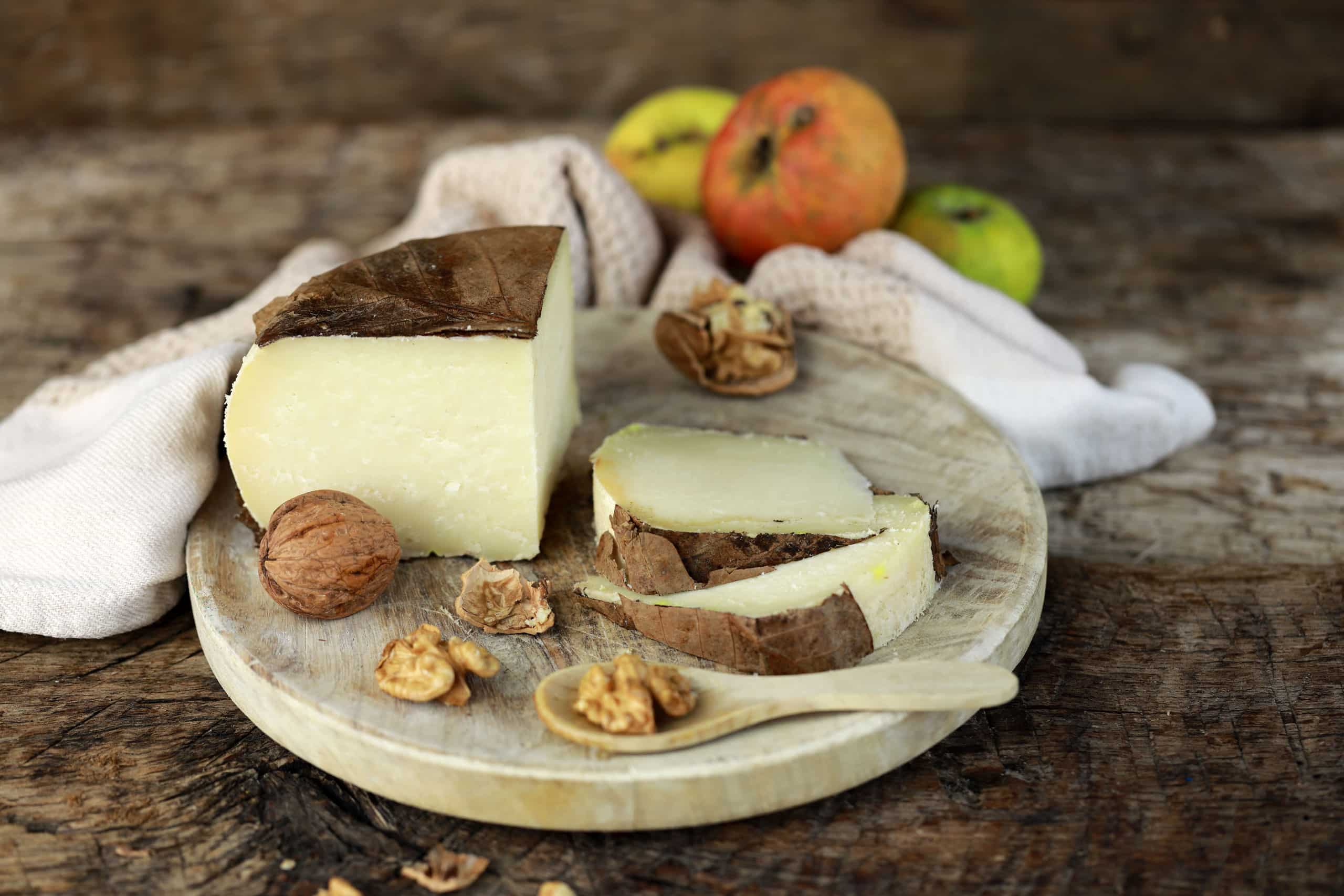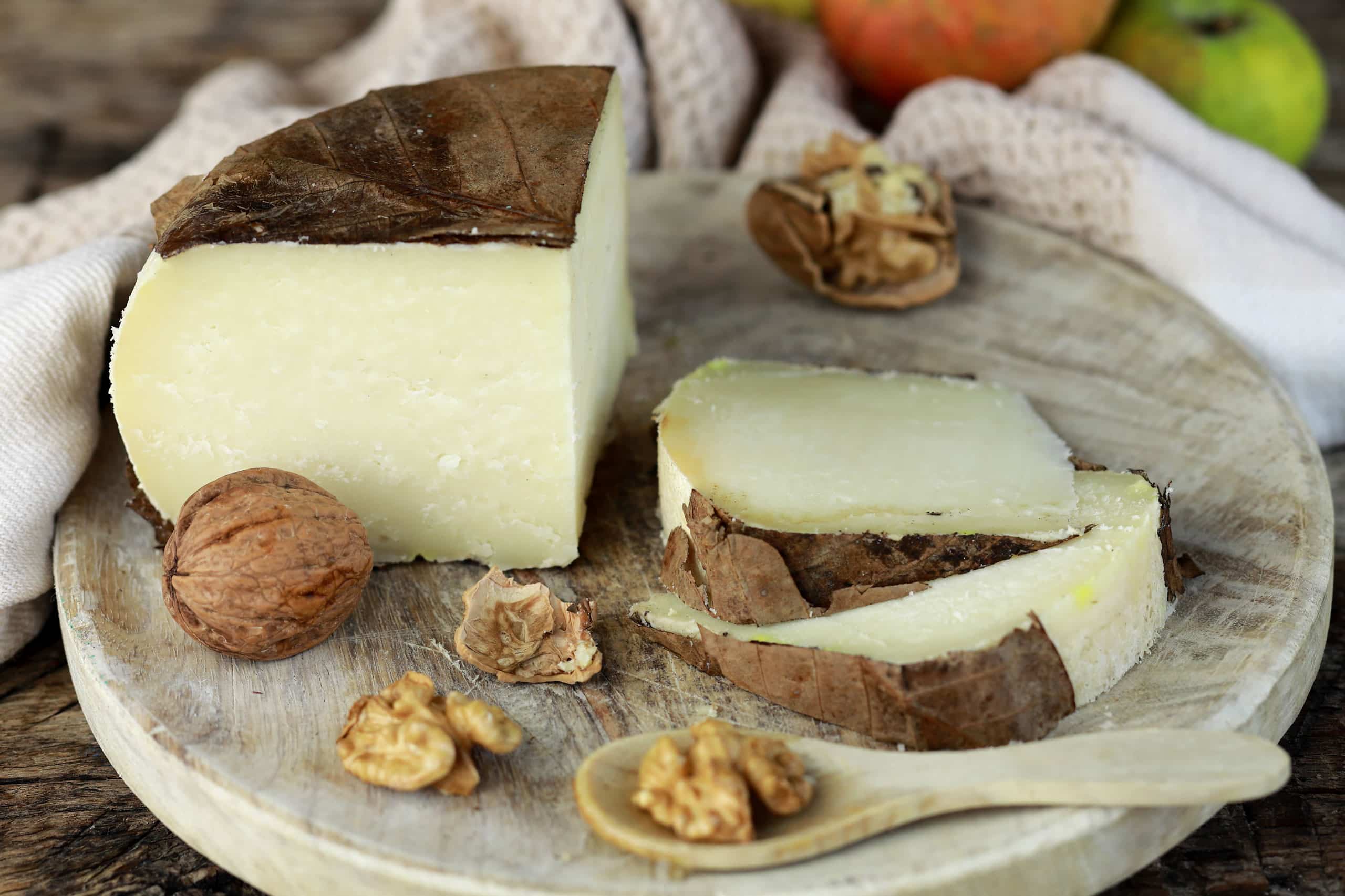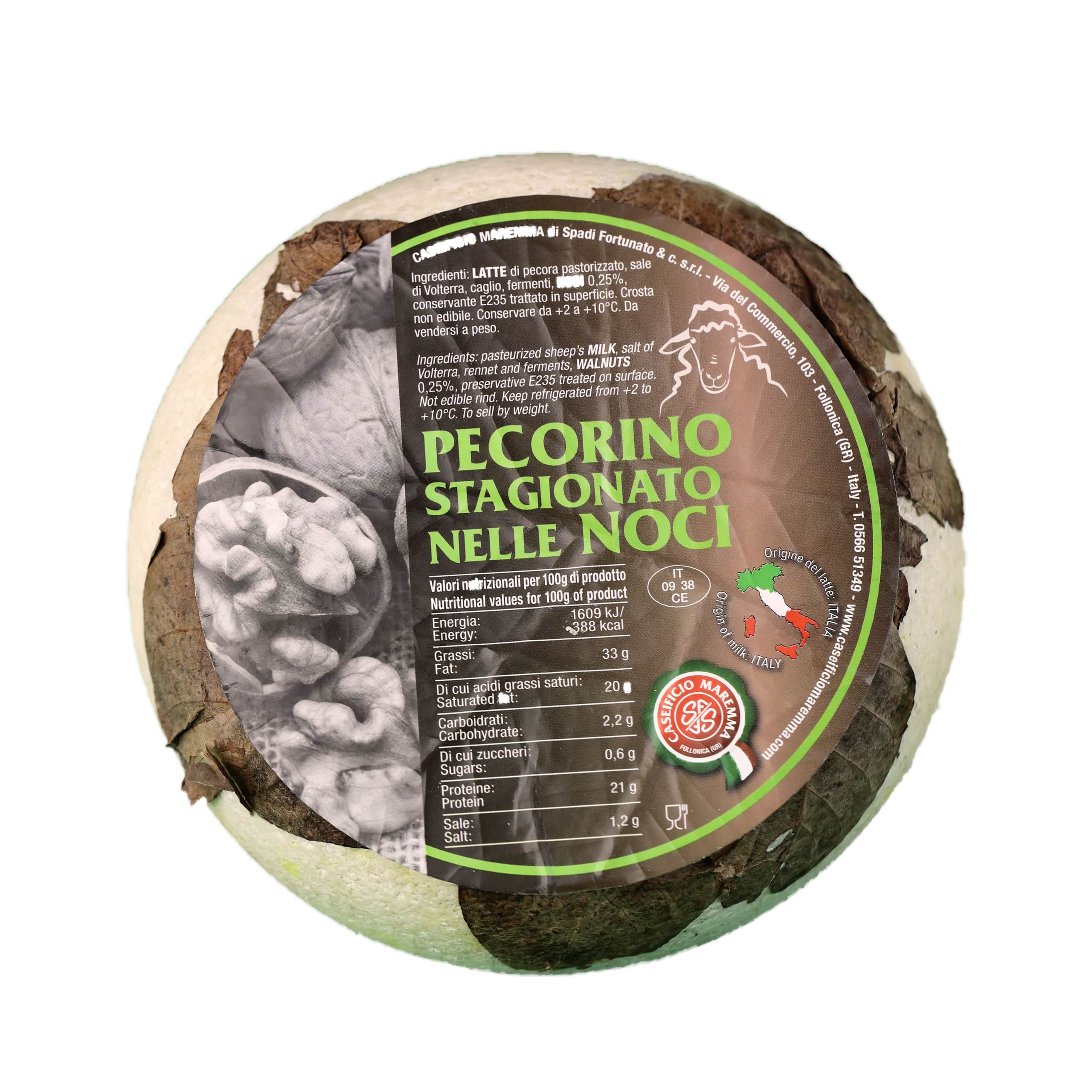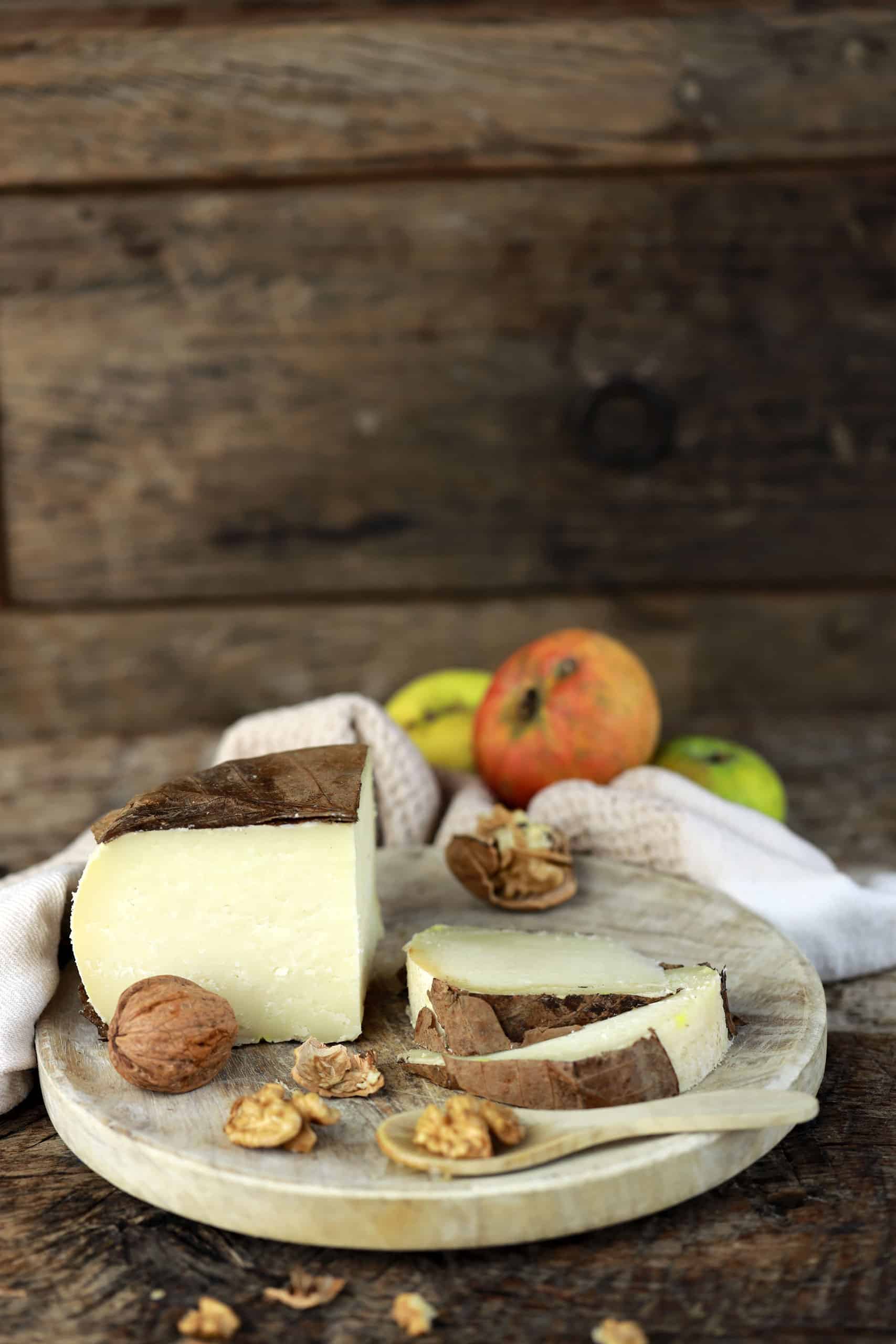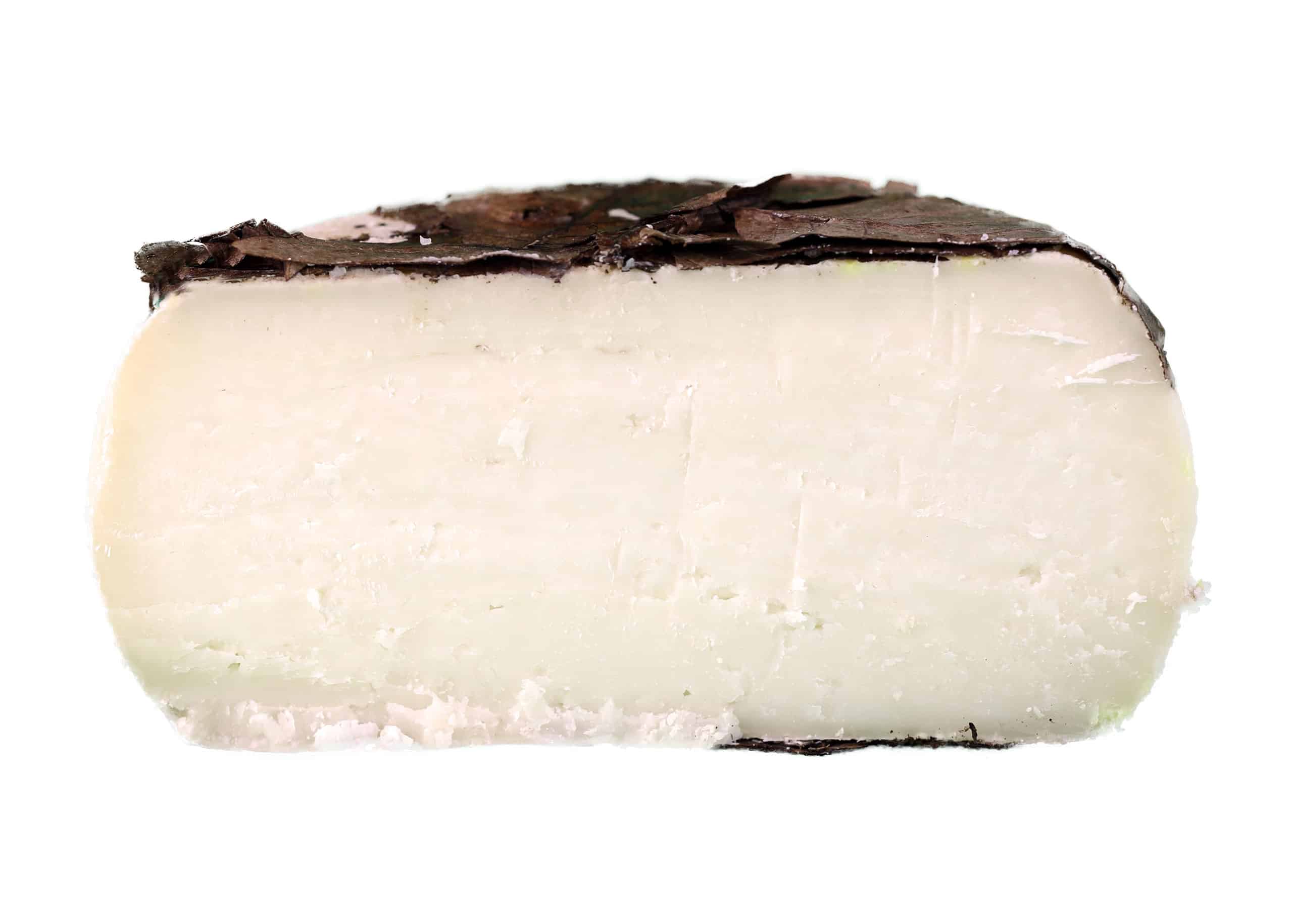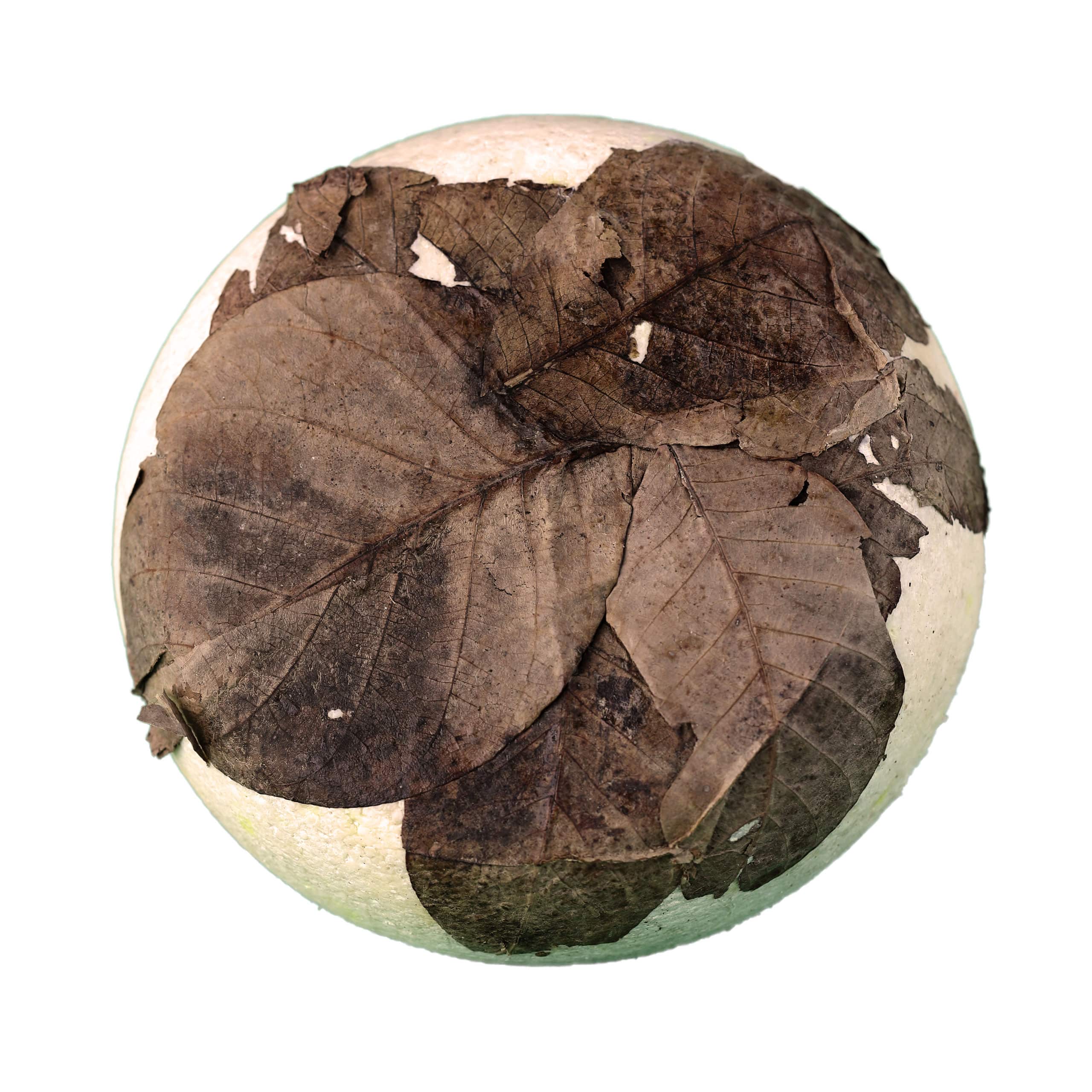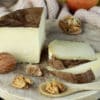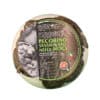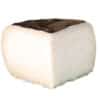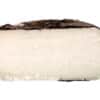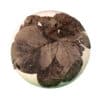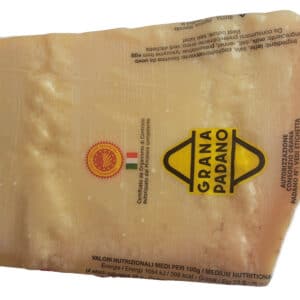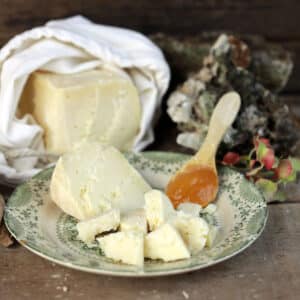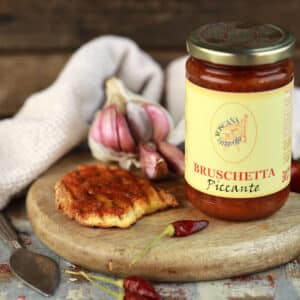This pecorino cheese aged in walnut leaves is made using only fresh pasteurized sheep’s milk to which rennet, lactic ferments, Volterra salt and obviously walnuts are added. It is produced for us by the Spadi family’s dairy that has been operating in Maremma – in Follonica – since the 1960s.
The thin straw-colored rind protects a compact white or very light yellow paste, studded with walnut leaves. Thanks to a fairly fast maturation, about thirty days, this cheese is characterized by an elastic and dense structure and a unique and balanced flavor.
It is excellent both consumed alone, both in the aperitif buffet or in the appetizer platter. However, it has a varied type of use. We recommend it cut into fairly thin flakes in salads, or added to the filling of homemade ravioli and dumplings for a first course that will leave your guests speechless, or on a bruschetta of hot bread, for a quick snack but from the exciting taste.
Noci, a thousand-year history
The use of walnuts as a food eaten alone and as a favorite ingredient to be used in the preparation of food, is lost in the mists of time. In fact, man has been consuming them since the dawn of history. Their beneficial properties on the brain have been known since ancient times and were mainly based on the very strong similarity between the kernels and the two cerebral hemispheres.
As explained and argued in the medieval work “Signatura Rerum” – which aimed to document the therapeutic properties of plants and fruits based on their affinity with the parts of the human body – walnuts are counted as a favorite remedy in the treatment of wounds to the skull, to treat headaches, mental illnesses and even for epilepsy.
A recent study, published in the “Journal of Nutrition, Health and Aging”, has also shown that they strengthen memory and cognitive abilities. This could depend on the fact that these fruits have a high concentration of antioxidants and Omega-3 fatty acids, especially alpha-linolelic acid, substances that also perform a protective role against cancer and cardiovascular diseases, so much so that it is recommended to consume at least 20 grams per day to keep the heart healthy.
Moreover, thanks to the fact that they are rich in mineral salts (magnesium, potassium and calcium) and vitamin E, they are an excellent food to integrate into the everyday diet because they help to lower cholesterol levels.
However, returning to a geographical and temporal horizon closer to us, walnuts have always represented a fundamental food in the peasant diet of past generations, especially in the cold winter months, during which, thanks to their high nutritional power, they helped to reach the required caloric intake. It is therefore not surprising that their use has also reached the cheese-making sector.
Ingredients
Pasteurized sheep’s MILK, Volterra salt, rennet, ferments.
Surface treated with walnuts.
Inedible rind.
Store from + 2 ° to + 10 ° C.
Produced and packaged in the IT 09 038 CE factory.

